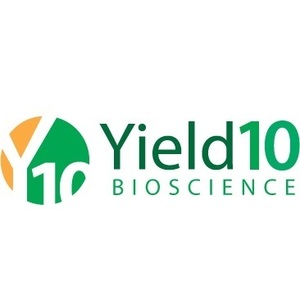Yield10 generates revenue from camelina feedstock delivery

November 28, 2023
BY Yield10 Bioscience Inc
Yield10 Bioscience Inc., an agricultural bioscience company, today announced that the harvest of a majority of the winter and spring camelina sativa (camelina) grain produced under grower contracts in 2022/2023 has been completed. This harvest marks the establishment of the company’s “camelina seed genetics to biofuel” platform, as the camelina grain is being delivered to an offtake partner that has crushed the grain and refined the oil into biofuel. As a result, Yield10 has begun generating revenue from camelina grain delivery for the production of feedstock oil for sustainable transportation fuels. Yield10 expects the revenue stream from sales of camelina grain to be a key contributor to the company’s financial profile in the coming years.
“We are extremely pleased to achieve this milestone of generating revenue by commercializing our ‘Camelina Seed Genetics to Biofuel’ platform,” said Oliver Peoples, president and CEO of Yield10 Bioscience. “This was achieved through the commitment and dedication of the Yield10 team working closely with growers as partners. As we have transitioned to the commercialization of Camelina, we can now turn our focus to building the technology foundation to accelerate grower adoption of Camelina for the biofuels market. We believe that our herbicide tolerant Camelina varieties, currently progressing through development, regulatory review and scale-up, will play a vital role in our strategy to grow acreage substantially over time. We remain focused on meeting our future commercialization goals and plan to continue revenue generation and ultimately to fully realize our vision for Yield10.”
One of Yield10’s primary goals for 2023 was to demonstrate the commercial aspects of its value chain, which provides proprietary Camelina seed genetics, includes the signing of grower contracts, and facilitates timely grain offtake for the crushing and refining of Camelina grain into biofuel. This milestone demonstrates the Company’s capabilities to engage growers, build strong commercial relationships, execute logistics, and ultimately drive revenue generation. Most importantly, it provides the framework for scaling-up Camelina acreage over time to position Camelina as potentially a major source of low-carbon index feedstock oil for the biofuel industry. Yield10 continues to engage with market participants to secure additional partnerships in the biofuel space.
Yield10 engaged with growers in fall 2022 to plant winter Camelina under commercial contract and in spring 2023 to plant spring Camelina. These crops were harvested between July 2023 and September 2023. Feedback from growers has thus far been positive, especially in areas where drought conditions persisted over the season. In these areas, Camelina performed very well in comparison to other crops.
Advertisement
Advertisement
Yield10 is working to secure grower contracts with farmers to plant Camelina for harvest in the third quarter of 2024. Potential growers are encouraged to contact Yield10 to learn more about participating in the “camelina seed genetics to biofuel” platform.
Advertisement
Advertisement
Related Stories
The U.S. EPA on July 8 hosted virtual public hearing to gather input on the agency’s recently released proposed rule to set 2026 and 2027 RFS RVOs. Members of the biofuel industry were among those to offer testimony during the event.
The USDA’s Risk Management Agency is implementing multiple changes to the Camelina pilot insurance program for the 2026 and succeeding crop years. The changes will expand coverage options and provide greater flexibility for producers.
EcoCeres Inc. has signed a multi-year agreement to supply British Airways with sustainable aviation fuel (SAF). The fuel will be produced from 100% waste-based biomass feedstock, such as used cooking oil (UCO).
President Trump on July 4 signed the “One Big Beautiful Bill Act.” The legislation extends and updates the 45Z credit and revives a tax credit benefiting small biodiesel producers but repeals several other bioenergy-related tax incentives.
The USDA’s National Agricultural Statistics Service on June 30 released its annual Acreage report, estimating that 83.4 million acres of soybeans have been planted in the U.S. this year, down 4% when compared to 2024.
Upcoming Events










